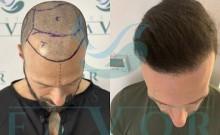
Treatment with the "love hormone" oxytocin may help improve brain function related to social information in autistic children, reveals a new study.
Autism spectrum disorder (ASD) or simply autism is a term used to characterise a group of disorders that affect the normal development of the brain. The developmental disorder starts by age three and leads to significant social, communication and behavioural changes. Difficulties in social interaction, verbal and non-verbal communication, or rigid-repetitive behaviours, are very common among autistic children.
The study looked at 17 autistic children, aged between seven and 17. During the study, participants received either a single dose of oxytocin or a placebo via nasal spray and participated in certain tasks involving social judgement.
With the help of functional magnetic resonance brain imaging (FMRBI), researchers monitored the drug's impact on the function of the brain regions that process social information. Results showed that oxytocin helped boost brain function, related to multiple social information processing routes associated with viewing, listening and communicating with other people.
"This is the first study to evaluate the impact of oxytocin on brain function in children with autism spectrum disorders," first author of the study, Ilanit Gordon, said in a news release.
"We found that brain centers associated with reward and emotion recognition responded more during social tasks when children received oxytocin instead of the placebo. Oxytocin temporarily normalized brain regions responsible for the social deficits seen in children with autism."
Till now, there is no medical or blood test available for an early diagnosis of the condition. The behaviour and development of a child are some factors used by health practitioners to determine the disorder. Findings of the study are expected to help improve autism treatment, as at present very few treatments are available.
The study has been published in the National Academy of Sciences.
However, the findings contradict a University of New South Wales study reported in July. Research leader Professor Mark Dadds analysed the effect of oxytocin nasal spray on 38 autistic boys and found that the love hormone was not helpful in improving difficulties involved in autism, particularly related to language, behaviour and social interaction.















